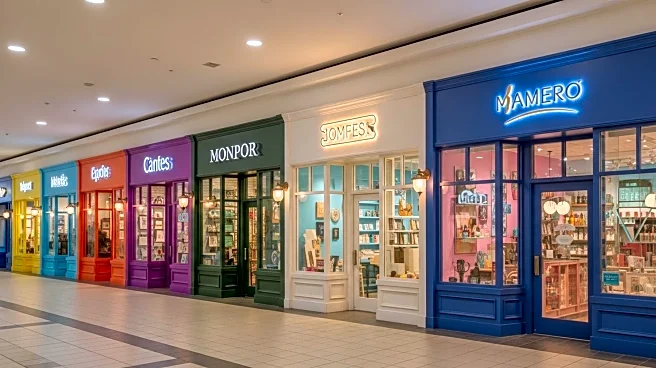What's Happening?
Across the United States, small businesses are increasingly securing prime commercial real estate as chain stores continue to abandon leases, leading to a rise in mall vacancies. The national vacancy rate in shopping centers increased to 5.8% in the second quarter of 2025, driven by the ongoing failure of chain stores. This trend is easing rental pressure, allowing small businesses, such as health practitioners and artists, to negotiate favorable lease terms. Experts note that opportunities for small businesses vary by geography, with some areas experiencing a reset in retail corridors. Despite the growing vacancies, rental rates are still rising, albeit at a slower pace, creating openings for small businesses to expand into previously unaffordable commercial properties.
Why It's Important?
The shift in commercial real estate dynamics presents significant opportunities for small businesses to access prime locations that were previously out of reach. This change can foster local economic growth and community engagement, as small businesses often bring unique offerings that reflect local culture. However, the risks remain high, as 50% of small businesses close within six years. The easing of rental pressures could lead to more flexible lease arrangements, supporting small business sustainability. Additionally, the trend may encourage landlords to rethink their strategies, potentially leading to more collaborative efforts with local councils to reduce vacancies and support local regeneration.
What's Next?
As mall vacancies continue to rise, small businesses may increasingly move into these spaces, potentially transforming them into community hubs. Landlords might offer short-term leases or pop-up programs to keep units occupied, providing a lifeline for entrepreneurs. The trend could lead to a more flexible and opportunity-rich environment for small businesses, allowing them to test physical presence without overextending capital. However, landlords may also consider selling properties if vacancies accumulate, impacting the availability of prime real estate for small businesses.
Beyond the Headlines
The growing presence of small businesses in prime real estate locations could lead to a cultural shift in shopping experiences, emphasizing local and unique offerings over standardized chain store products. This change might enhance community identity and support local economies, while also challenging traditional retail models. The trend could also influence urban planning and development strategies, encouraging more sustainable and community-focused approaches.









